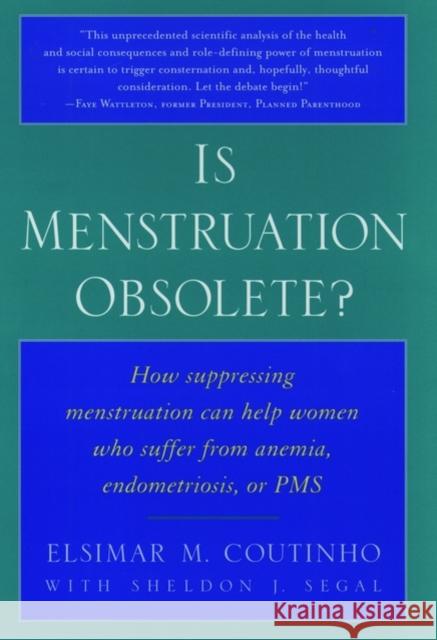Is Menstruation Obsolete? » książka
Is Menstruation Obsolete?
ISBN-13: 9780195130218 / Angielski / Twarda / 1999 / 208 str.
Is Menstruation Obsolete? argues that regular monthly bleeding is not the "natural" state of women, and that it actually places them at risk of several medical conditions of varying severity. The authors maintain that while menstruation may be culturally significant, it is not medically meaningful. Moreover, they propose that suppressing menstruation has remarkable health advantages.
Because of cultural changes, shorter durations of breast feeding, and birth control, the reproductive patterns of modern women no longer resemble that of their Stone age ancestors. Women have moved from the age of incessant reproduction to the age of incessant menstruation. Consequently, they often suffer from clinical disorders related to menstruation: anemia, endometriosis, and PMS, just to name a few. The authors encourage readers to recognize what has gone previously unnoticed that this monthly discomfort is simply not obligatory. They present compelling evidence that the suppression of menstruation is a viable option for women today, and that it can be easily attained through the use of birth control pills. In fact, they reveal that contraceptive manufacturers, knowing that many women equate menstruation with femininity and that without monthly bleeding would fear that they were pregnant, engineered pill dosage regimens to ensure the continuation of their cycles. Indeed, throughout history societies have assigned menstruation powerful meaning, and Is Menstruation Obsolete? presents a fascinating history of how menstruation inspired doctors to try therapeutic bleeding for a variety of ailments, and how this therapy remained dominant in Western medicine until the early 20th century.
Is Menstruation Obsolete? offers women a fresh view of menstruation, providing them with the information they need to make progressive choices about their health. This is a message whose time has come.











